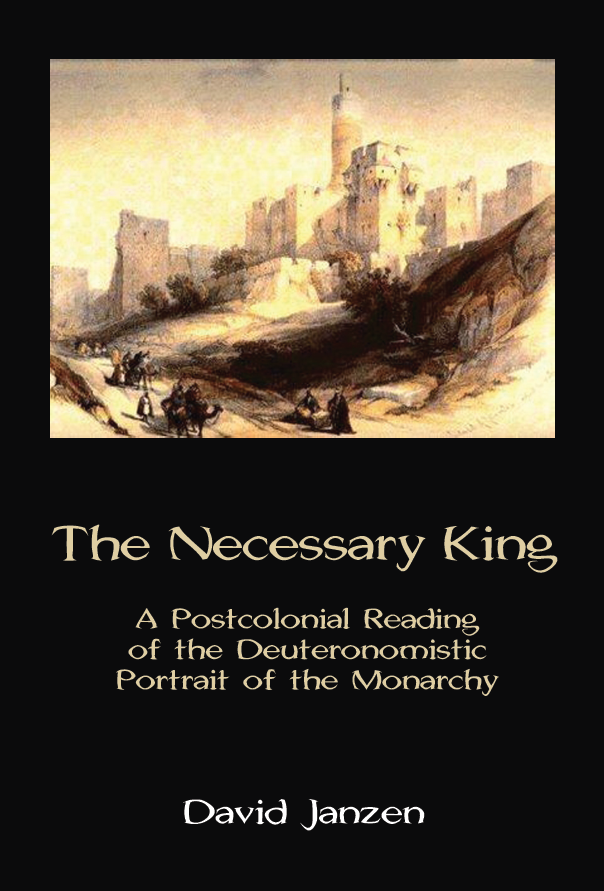The Necessary King: A Postcolonial Reading of the Deuteronomistic Portrait of the Monarchy
£80.00
The Necessary King explains why Israel needed a king according to the Deuteronomistic History, and why its exilic readers can expect no future except under Davidic rule.
The Necessary King explains why Israel needed a king according to the Deuteronomistic History, and why its exilic readers can expect no future except under Davidic rule. Given Israel’s tendency to rebellion against its divine suzerain, the king is the necessary agent of God’s colonization of Israel, making and keeping it a loyal subject.
The Deuteronomistic History with its pro-Davidic narrative has three prongs, each of which relies on an imitation of the imperial ideology of Judah’s colonial masters. First, Dtr imitates the discourse of Neo-Assyrian treaties and Mesopotamian royal inscriptions, replacing the imperial suzerain with God.
Second, having established this client —suzerain relationship in Deuteronomy, Dtr then goes on to imitate imperial portrayals of the disloyal and wicked foreign enemies whom the Mesopotamian king colonizes. Israel is a foreign enemy in God’s eyes, repetitively proving their disloyalty to their divine suzerain and so demonstrating the need for an Israelite king who will colonize them —for their own good.
Third, Dtr imitates the ideology of the Mesopotamian powers in its portrayal of the monarchy. Dtr presents the Davidides’ relation to Judah/Israel just as the Mesopotamian colonial powers present their kings’ relation to the foreign peoples they have conquered: their colonial rule is necessary, and actually benefits the peoples whom they colonize.
Disqualifying prophets, priests, and judges as potential leaders of Israel, and presenting the people as far too sinful to live without leadership, the Deuteronomistic History portrays the Davidic monarchy as a necessity.
Additional information
| table of contents | 1. Introduction: A Postcolonial Reading of the Deuteronomistic History 2. Dtr as an Exilic and Ancient Near Eastern history 3. Treaty Language in Deuteronomy: Dtr’s Introduction to Yhwh, Israel and the King 4. Israelites and Foreigners in Joshua and Judges 5. The Necessary King in the Narratives of Judges and Saul 6. Royal Cultic Leadership and Yhwh’s Choice of David 7. The End, or the New Beginning: Davidic Leadership as Solution to the Exile 8. Conclusion: The Reinscription of Colonial Hegemony in Dtr’s Discourse on the Davidides |
|---|


Uriah Kim, Biblical Interpretation –
This book is an ambitious one. Like … many others before him, Janzen wishes to propose the purpose of producing the Deuteronomistic History (DH). Why would the Deuteronomist (Dtr) write this massive corpus? Janzen’s answer: to convince exilic readers that they are incapable of being faithful to Yhwh on their own and therefore need a Davidic king, Jehoichin in this case, who can enforce their loyalty to Yhwh … [I]t is necessary for Israel to have a Davidic king in order to have a future. This work displays a great deal of erudition and creativity; Janzen proficiently uses ancient Near Eastern texts to support his claims, skillfully exegetes biblical texts to reveal his insights, and discretely employs postcolonial tools to frame and build his thesis. … There is no doubt that this is a first-rate work.